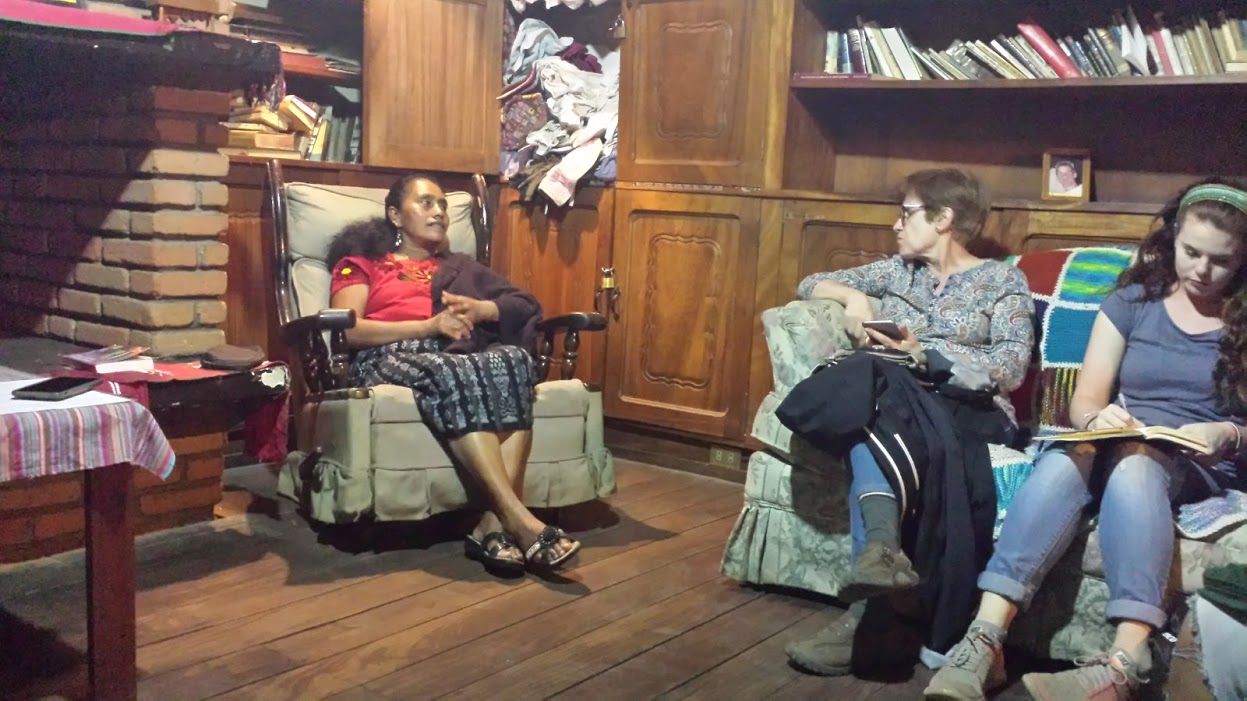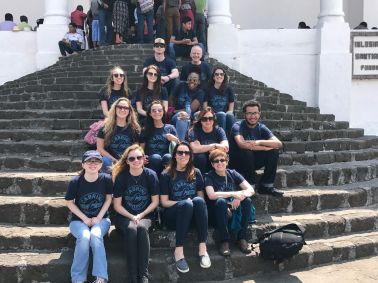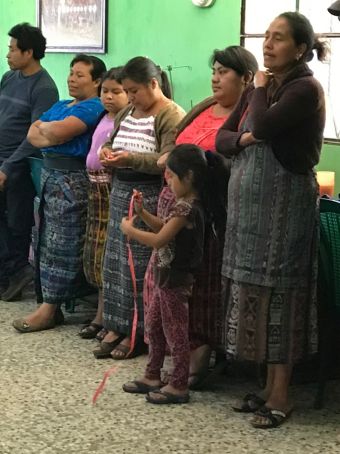Video by Marissa Roberto, Shannon Finn, and Eric Stone

“I left San Lucas and met my husband and left this community. I had four children at that point and was married in 1984 and divorced in 2003. After separating from my husband, I ended up in Guatemala City and there I joined another group that worked on building women’s self-esteem and also to know their value, think about ways in which we could be self-sufficient.”
Guicha is a Guatemalan women from San Lucas Toliman. She is a single mother with four children. She runs the women’s center in San Lucas and works to promote self-esteem and self-sufficiency in the women in the community.

This past spring break, Cabrini students had the chance to learn about many global issues, one of which was women’s rights and issues. In the United States, the month of March is dedicated to women’s history. This experience allowed students to be able to expand their global viewpoint by hearing personal stories about how women are treated in Guatemala.
Every year Dr. Jerry Zurek and Dr. Raquel Green take a group of dedicated students to Guatemala. They get on a plane in Philadelphia and then hours later they walk off a plane into Guatemala City where they have to travel another almost three hours to a small town called San Lucas Toliman.
On a global scale, San Lucas seems unimportant. It is a small town on a lake, but do not let that fool you. San Lucas touches the heart of everyone who steps foot there. The charm, openness and graciousness of the people of San Lucas do not leave students for the rest of their lives and this year was no different.
Three faculty members, 10 students and two alumni made the trip this year. They had the opportunity, through the mission there, to work alongside with and talk with a number of different people in San Lucas. one of those people was Guicha.
According to the mission’s website, the women’s center is “a place where women can work, think, be together – not just a meeting hall or a meeting place.” Guicha not only runs the women’s center but also teaches lessons on weaving, sewing and other skills that can help women become more independent and self-sufficient.
She works hard to make sure that this generation has rights because she remembers when woman did not.
“Before the Peace Accords and before this change, women were not aware that they had rights. They just sort of accepted their gender roles and did not question,” Guicha said. “And it was at that moment when they began to think about it and think of their own dignity and how they could improve their lives.”
In the 1960s Guatemala began a brutal civil war; it was the government fighting against various rebel groups. According to a CNN article, “During the conflict, atrocities were committed against women, who were used as a weapon of war. In 1996, a ceasefire agreement was reached between insurgents and the government.” However, many of the people who committed these are still in positions of power and their views on women have not changed.
The culture in Guatemala is very machismo, or male-centered, and that often gives way to gender-based violence.

“Here in Guatemala, there is quite a bit of gender violence against women as a way to control,” Guicha said. “So, if there is a case of gender violence and the women appeal to some kind of judicial process, it takes time and it takes a lot of money. They may not have money or they may not have the time to travel the distance. Many times women just don’t go there.”
“Guatemala ranks among the countries with the highest rate of violent deaths among women,” according to the United Nations. “In 2013, 748 women lost their lives to violence, a 10 percent increase compared to 2012, this gives an average of two deaths per day.”
Women are also left alone with their children a lot of the time because their husbands either are killed or leave them. This means that they are left alone to raise their children and find a way to earn money to support their entire family.
“Everything that they earn — maybe 500 quetzals a month [about one US dollar a day] — goes to educate their children and to dress them,” Guicha said. “Their goal is to get their children some kind of an education, but it is difficult. It is very difficult.”
However, even though it seems like a constant struggle for women in Guatemala, they refuse to give up and continue to fight for a better life for them and their daughters
“I have an 18-year-old daughter. She is a very, very strong girl. She finished her schooling, got an accounting degree and now she is doing business administration in the city,” Guicha said. “She learned a lot as she was growing up by seeing my difficulties and struggles. My daughter is doing very well, she is very talented, self-reliant and is a very strong woman.”
“The strength here is within the family unit. Women have certain life skills that allow them to survive on their own. On the other hand, men would have to go out and buy food on their own if they wanted to eat because the women usually make the food and they would not have that option anymore after they were separated.”



